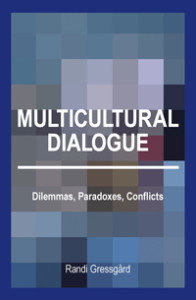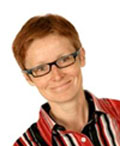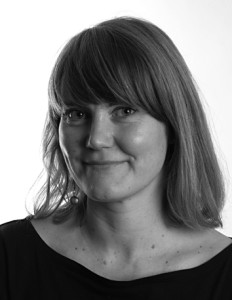 As cross-cultural migration increases democratic states face a particular challenge: how to grant equal rights and dignity to individuals while recognizing cultural distinctiveness. In response to the greater number of ethnic and religious minority groups, state policies seem to focus on managing cultural differences through planned pluralism. This book explores the dilemmas, paradoxes, and conflicts that emerge when differences are managed within this conceptual framework. After a critical investigation of the perceived logic of identity, indicative of Western nation-states and at the root of their pluralistic intentions, the author takes issue with both universalist notions of equality and cultural relativist notions of distinctiveness. However, without identity is it possible to participate in dialogue and form communities? Is there a way out of this impasse? The book argues in favor of communities based on nonidentitarian difference, developed and maintained through open and critical dialogue.
As cross-cultural migration increases democratic states face a particular challenge: how to grant equal rights and dignity to individuals while recognizing cultural distinctiveness. In response to the greater number of ethnic and religious minority groups, state policies seem to focus on managing cultural differences through planned pluralism. This book explores the dilemmas, paradoxes, and conflicts that emerge when differences are managed within this conceptual framework. After a critical investigation of the perceived logic of identity, indicative of Western nation-states and at the root of their pluralistic intentions, the author takes issue with both universalist notions of equality and cultural relativist notions of distinctiveness. However, without identity is it possible to participate in dialogue and form communities? Is there a way out of this impasse? The book argues in favor of communities based on nonidentitarian difference, developed and maintained through open and critical dialogue.
Randi Gressgård is a Senior Researcher at the Centre for Women’s and Gender Research (SKOK) at the University of Bergen. She is also affiliated with the research unit International Migration and Ethnic Relations (IMER) in Bergen. Her research interests focus on minority research, gender studies, and philosophy of science. Her publications include Fra identitet til forskjell [From Identity to Difference] (Spartacus/Scandinavian Academic Press, 2005) and Kjønnsteori[Gender Theory] (co-ed., Gyldendal Akademisk, 2008). Read more…
Religious traditions and muslim youth in europe
Christine M. Jacobsen (UiB/Uni Rokkansenteret)
Jonas Otterbeck (University of Lund)
Synnøve Bendixsen (SKOK/Uni Rokkansenteret)
A major question regarding Islam in Europe concerns the religiosity of “Muslim youth” – a category currently epitomizing both the fears and hopes of multicultural Europe. At this seminar, researchers working in 3 European countries look at how Islamic traditions are engaged and reworked by young people, born and educated in European societies, and discuss the modes of religiosity that are shaped in a context of international migration, globalization, and secular modernity.
Christine M. Jacobsen launches her new book Islamic Traditions and Muslim youth in Norway in conversation with Jonas Otterbeck, the author of Samtidsislam: unga muslimer i Malmö och Köpenhamn and Synnøve Bendixsen, the author of “It’s like doing SMS to Allah” Young Female Muslims Crafting a Religious Self in Berlin.
Seminar and book launch.
Organised in collaboration with Department of Social Anthropology, UiB.
Time: Friday 21 January, 13.15-16.00.
Venue: Uni Rokkansenteret, Nygårdsgaten 5, 6. etg (5th Floor)
Lessons from the past: framing post-war immigration in Germany by historical analogies
In many West European countries, the experience of mass immigration after 1945 was perceived as something basically new and unprecedented. In the lengthy process of coming to terms with the new situation and of developing a self-understanding as countries of immigration and of ethnic pluralism, historical arguments often played an important role. By placing present-day immigration into a historical perspective, by constructing narratives of continuity (and discontinuity) and not least by presenting persuasive historical analogies, historians (and others) introduced arguments that informed the debates of the day and allowed the experiences of immigration and multi-ethnicity to be integrated into (national) narratives of identity. The German case is particularly interesting in this respect, since a tradition of tolerance and successful integration had to be invented in spite of the fresh memories of the Nazi-past that were witness to the contrary.
 Christhard Hoffmann (born 1952 in Luneburg, Germany) is a German historian and professor of modern European history at the University of Bergen. In the period 2007-2013 he was Head of the Department of Archaeology, History, Cultural Studies and Religion.
Christhard Hoffmann (born 1952 in Luneburg, Germany) is a German historian and professor of modern European history at the University of Bergen. In the period 2007-2013 he was Head of the Department of Archaeology, History, Cultural Studies and Religion.
Hoffmann defended in 1986 his doctoral dissertation on German Antiquity historians’ representation of Jews and Judaism in the 19th and 20th centuries [1] at the Technische Universität Berlin, where he also worked as a researcher for many years. From 1994 to 1998 he was a visiting professor at the University of California, Berkeley, and since 1998 he has worked at the University of Bergen.
Hoffmann has an extensive list of publications in the fields of German-Jewish history and cultural history, history of anti-Semitism and migration history.
Communicating Migration Seminar series
The IMER seminar series for 2014 will cover how migration and ethnic relations are communicated in every-day encounters, in mass and social media, in politics and in teaching at the universities. Has the way people talk about migration and migrants in different social contexts changed over time, and in which ways has it changed? How does migration theory and research fit in with other topics and theories in the social sciences, and how do results from migration research inform public debate and policy development?
Communicating migration will be discussed from various angles in our seminar series on international migration and ethnic relations during spring and autumn 2014. We welcome papers that touch upon this broad theme from different angles. Historical analyses of change over time in regard to politics and public debate, research foci and disciplinary concerns are specifically welcomed.
Plural policing and the safety–security nexus in urban governance
Based on a study of policy frames in urban politics in Sweden, Malmö in particular, this article discusses the safety–security nexus in urban governance. It argues that perceived safety figures as an index of order and integration, and security becomes part and parcel of an expanded cohesion agenda which chain-links criminal justice, immigration control and civic integration. The expanded cohesion agenda in urban governance involves plural urban policing enabled by partnership agreements between the police and local authorities. The article demonstrates how force-based, pre-emptive crime-fighting is intertwined with preventative empowerment programmes; the ‘will to power’ is embedded in ‘the will to empower’. The preferred solution to social problems is extended force-based policing in combination with more police involvement in ‘social’ governance. It is argued that the expanded social cohesion agenda works to ‘criminalize’ specific subpopulations by replacing ‘social’ welfare politics with crime prevention programmes. Under an expanded cohesion agenda, crime prevention has less to do with preventing people from violating the law and more to do with securing the social order. Moreover, it is argued that security politics relates to a broader urban politics aimed at nurturing prosperous diversity considered to benefit the city as a whole, at the cost of problematic difference. In conclusion the article argues that urban security politics lends itself to old welfare state structures, even as responsibility for social crime prevention is devolved ‘downwards’ and distributed across and array of agencies. The social democratic legacy – the revised welfare state – seems to offer favorable conditions for plural policing of minority groups in the city.
 Randi Gressgård is professor at the Centre for Women’s and Gender Research (SKOK), and affiliated with the research unit International Migration and Ethnic Relations (IMER), University of Bergen. Her research interests include migration & minority studies, gender & sexuality studies and urban studies. Among her recent publications are Multicultural Dialogue: Dilemmas, Paradoxes, Conflicts (New York and Oxford: Berghahn Books, 2010/2012) and ‘The power of (re)attachment in urban strategy: Interrogating the framing of social sustainability in Malmö’ (Environment and Planning A 2014, vol. 46).
Randi Gressgård is professor at the Centre for Women’s and Gender Research (SKOK), and affiliated with the research unit International Migration and Ethnic Relations (IMER), University of Bergen. Her research interests include migration & minority studies, gender & sexuality studies and urban studies. Among her recent publications are Multicultural Dialogue: Dilemmas, Paradoxes, Conflicts (New York and Oxford: Berghahn Books, 2010/2012) and ‘The power of (re)attachment in urban strategy: Interrogating the framing of social sustainability in Malmö’ (Environment and Planning A 2014, vol. 46).
Mistillitens migrasjon: Europeisk sør-nord mobilitet i kjølvannet av krisa
Tema for innlegget er den nye Europeiske sør-nord migrasjonen. Den empiriske analysen er basert på dybdeintervjuer med noen av dem som har reist fra Spania til Norge etter kriseåret 2008. Innlegget vil belyse hvordan sør-nord migrasjonen i kjølvannet av krisa er mer enn en desperat flukt fra arbeidsledighet i hjemlandet. Den vidtrekkende mistilliten til det politiske systemet og følelsen av en dyptgripende håpløshet i hjemlandet er viktige migrasjonsfaktorer i tillegg til jobbmuligheter for dem som kommer til Norge.
Susanne Bygnes (phd) er postdoktor ved universitetet i Bergen. Hun leder det fireårige prosjektet Labour Migration in Uncertain Times: Migration from Spain to Norway after 2008, finansiert av forskningsrådets VAM-program. Hun har publisert en rekke internasjonale artikler på tema som mangfold og likestilling, blant annet Ambivalent Multiculturalism (2012) i tidsskriftet Sociology.

